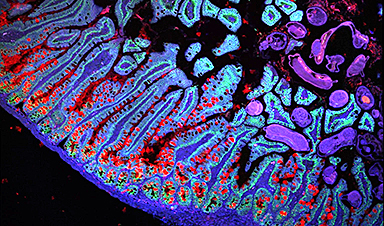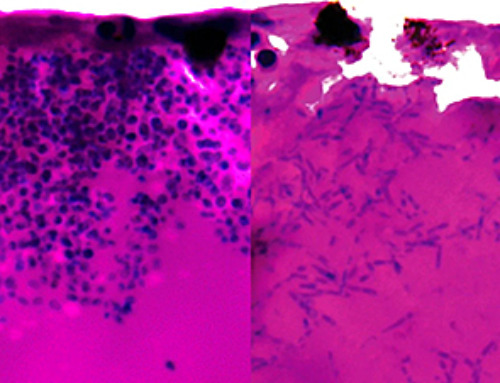New research from the Human Cell Atlas offers insights into cell development, disease mechanisms, and genetic influences, enhancing our understanding of human biology and health.
The Human Cell Atlas (HCA) consortium has made significant progress in its mission to better understand the cells of the human body in health and disease, with a recent publication of a Collection of more than 40 peer-reviewed papers in Nature and other Nature Portfolio journals.
The Collection showcases a range of large-scale datasets, artificial intelligence algorithms, and biomedical discoveries from the HCA that are enhancing our understanding of the human body. The studies reveal insights into how the placenta and skeleton form, changes during brain maturation, new gut and vascular cell states, lung responses to COVID-19, and the effects of genetic variation on disease, among others.
Contributed by researchers worldwide, the papers in the Collection serve as essential tools and examples for building cell atlases on a large scale. Collectively, they demonstrate the HCA's commitment to capturing the full spectrum of human diversity, including genetic, geographic, age, and sex differences.

Comprehensive Mapping of Human Cells
The HCA is developing and using experimental and computational approaches in single-cell and spatial genomics to create comprehensive reference maps of all human cells—the fundamental units of life—as a basis for both understanding human health and diagnosing, monitoring, and treating disease. To date, more than 3,600 HCA members from over 100 countries have worked together to profile more than 100 million cells from over 10,000 people. Researchers are currently working to assemble a first draft Human Cell Atlas, which will eventually grow to include up to billions of cells across all organs and tissues.

New Insights from the HCA Collection
This Collection of studies in Nature Portfolio demonstrates major advances in three aspects of HCA's mission: mapping individual adult tissues or organs, mapping developing human tissues, and developing groundbreaking new analytical methods, including artificial intelligence/machine learning-based methods. The researchers involved are members of the 18 Biological Networks of the HCA, each of which is focused on a particular organ, tissue, or system.

Foundational Goals and Achievements of HCA
"The Human Cell Atlas is a global initiative that is already transforming our understanding of human health. By creating a comprehensive reference map of the healthy human body—a kind of 'Google Maps' for cell biology—it establishes a benchmark for detecting and understanding the changes that underlie health and disease. This new level of insight into the specific genes, mechanisms, and cell types within tissues is laying the groundwork for more precise diagnostics, innovative drug discovery and advanced regenerative medicine approaches," said Professor Sarah Teichmann, founding co-chair of the Human Cell Atlas, now at the Cambridge Stem Cell Institute.

Enhancing Our Understanding of Human Biology
Dr. Aviv Regev, founding co-chair of the HCA, now at Genentech, said: "This is a pivotal moment for the HCA community as we move towards achieving the first draft of the Human Cell Atlas. This collection of studies showcases the major advances from biology to AI achieved since the publication of the HCA White Paper in 2017 and that now deliver numerous biological and clinical insights. This large-scale, community-driven, globally representative, and rigorously curated atlas will evolve continuously and remain accessible to all to advance our understanding of the human body in health and treatments for disease."

Detailed Insights into Human Tissues and Disease
Several studies in the Collection provide a detailed analysis of specific tissues and organs and reveal new biological discoveries important for understanding disease. For example, a cell atlas of the human gut from healthy and diseased tissue identified a gut cell type that may be involved in gut inflammation [Oliver et al.], providing a valuable resource for investigating and ultimately treating conditions such as ulcerative colitis and Crohn's disease.
Developmental Biology and Genetic Insights
The new collection of papers also includes novel maps of human tissues during development. These include the first map of human skeletal development, revealing how the skeleton forms [To et al.], shedding light on the origins of arthritis, and identifying cells involved in skeletal conditions. An additional study describes a multi-omic atlas of the first-trimester placenta, including insight into genetic programs that control how the placenta develops and functions to provide nutrients and protection to the embryo [Shu et al.]. These and other developmental biology studies in the Collection increase our fundamental understanding of healthy development in time and space and provide blueprints and resources for creating therapeutics since many diseases originate in human development.
Promoting Equity and Ethical Research
An accompanying article highlights the importance of including samples from historically underrepresented human populations and describes actions and principles aimed at promoting equitable science
Professor Partha Majumder of the John C Martin Centre for Liver Research and Innovation, India, and a member of the HCA Organizing Committee member and Co-Chair of the HCA Equity Working Group, said: "A key priority for HCA is to ensure a representation of the vast range of human diversity; genetic, cultural and geographical. HCA studies such as the Asian Immune Diversity Atlas and the analysis of distinctive histopathological differences in COVID-19 samples from Malawi demonstrate the remarkable power of large-scale international scientific collaboration."
Another article illustrates HCA's role in developing new ethical guidance on a broad range of issues in genomic science and making this advice available to scientists worldwide [Kirby et al.].
AI Revolutionizing Cellular Biology Research
Just as AI has revolutionized humans' ability to process text quickly, it is also now helping scientists to develop a deeper and more complete understanding of biology at the cellular level and beyond. The Collection introduces new AI methods to better understand and classify cell types and search for cells in this vast map. For example, SCimilarity [Heimberg et al.] enables researchers to compare single-cell datasets to identify similar cell types in different tissues and contexts, analogous to how "reverse image search" can search for photos. Other research teams tackled long-standing challenges, such as classifying cells into hierarchical groups based on their properties, known as cell annotation [e.g., Ergan et al. and Fischer et al.]
Conclusion: Impact of the HCA Collection
Dr. Jeremy Farrar, Chief Scientist, World Health Organization, said: "This landmark collection of papers from the international Human Cell Atlas community underscores the tremendous progress toward mapping every single kind of human cell and how they change as we grow up and age. The insights emerging from these discoveries are already reshaping our understanding of health and disease, paving the way for transformative health benefits that will impact lives worldwide."
Reference: "The Human Cell Atlas: towards a first draft atlas" 20 November 2024, Nature.
The individual studies in the Collection were funded by over one hundred different funding sources worldwide. The HCA also receives organizational support from the Chan Zuckerberg Initiative, Wellcome, the Klarman Family Foundation, the Helmsley Charitable Trust, and others.
News
Scientists Unlock a New Way to Hear the Brain’s Hidden Language
Scientists can finally hear the brain’s quietest messages—unlocking the hidden code behind how neurons think, decide, and remember. Scientists have created a new protein that can capture the incoming chemical signals received by brain [...]
Does being infected or vaccinated first influence COVID-19 immunity?
A new study analyzing the immune response to COVID-19 in a Catalan cohort of health workers sheds light on an important question: does it matter whether a person was first infected or first vaccinated? [...]
We May Never Know if AI Is Conscious, Says Cambridge Philosopher
As claims about conscious AI grow louder, a Cambridge philosopher argues that we lack the evidence to know whether machines can truly be conscious, let alone morally significant. A philosopher at the University of [...]
AI Helped Scientists Stop a Virus With One Tiny Change
Using AI, researchers identified one tiny molecular interaction that viruses need to infect cells. Disrupting it stopped the virus before infection could begin. Washington State University scientists have uncovered a method to interfere with a key [...]
Deadly Hospital Fungus May Finally Have a Weakness
A deadly, drug-resistant hospital fungus may finally have a weakness—and scientists think they’ve found it. Researchers have identified a genetic process that could open the door to new treatments for a dangerous fungal infection [...]
Fever-Proof Bird Flu Variant Could Fuel the Next Pandemic
Bird flu viruses present a significant risk to humans because they can continue replicating at temperatures higher than a typical fever. Fever is one of the body’s main tools for slowing or stopping viral [...]
What could the future of nanoscience look like?
Society has a lot to thank for nanoscience. From improved health monitoring to reducing the size of electronics, scientists’ ability to delve deeper and better understand chemistry at the nanoscale has opened up numerous [...]
Scientists Melt Cancer’s Hidden “Power Hubs” and Stop Tumor Growth
Researchers discovered that in a rare kidney cancer, RNA builds droplet-like hubs that act as growth control centers inside tumor cells. By engineering a molecular switch to dissolve these hubs, they were able to halt cancer [...]
Platelet-inspired nanoparticles could improve treatment of inflammatory diseases
Scientists have developed platelet-inspired nanoparticles that deliver anti-inflammatory drugs directly to brain-computer interface implants, doubling their effectiveness. Scientists have found a way to improve the performance of brain-computer interface (BCI) electrodes by delivering anti-inflammatory drugs directly [...]
After 150 years, a new chapter in cancer therapy is finally beginning
For decades, researchers have been looking for ways to destroy cancer cells in a targeted manner without further weakening the body. But for many patients whose immune system is severely impaired by chemotherapy or radiation, [...]
Older chemical libraries show promise for fighting resistant strains of COVID-19 virus
SARS‑CoV‑2, the virus that causes COVID-19, continues to mutate, with some newer strains becoming less responsive to current antiviral treatments like Paxlovid. Now, University of California San Diego scientists and an international team of [...]
Lower doses of immunotherapy for skin cancer give better results, study suggests
According to a new study, lower doses of approved immunotherapy for malignant melanoma can give better results against tumors, while reducing side effects. This is reported by researchers at Karolinska Institutet in the Journal of the National [...]
Researchers highlight five pathways through which microplastics can harm the brain
Microplastics could be fueling neurodegenerative diseases like Alzheimer's and Parkinson's, with a new study highlighting five ways microplastics can trigger inflammation and damage in the brain. More than 57 million people live with dementia, [...]
Tiny Metal Nanodots Obliterate Cancer Cells While Largely Sparing Healthy Tissue
Scientists have developed tiny metal-oxide particles that push cancer cells past their stress limits while sparing healthy tissue. An international team led by RMIT University has developed tiny particles called nanodots, crafted from a metallic compound, [...]
Gold Nanoclusters Could Supercharge Quantum Computers
Researchers found that gold “super atoms” can behave like the atoms in top-tier quantum systems—only far easier to scale. These tiny clusters can be customized at the molecular level, offering a powerful, tunable foundation [...]
A single shot of HPV vaccine may be enough to fight cervical cancer, study finds
WASHINGTON -- A single HPV vaccination appears just as effective as two doses at preventing the viral infection that causes cervical cancer, researchers reported Wednesday. HPV, or human papillomavirus, is very common and spread [...]





















